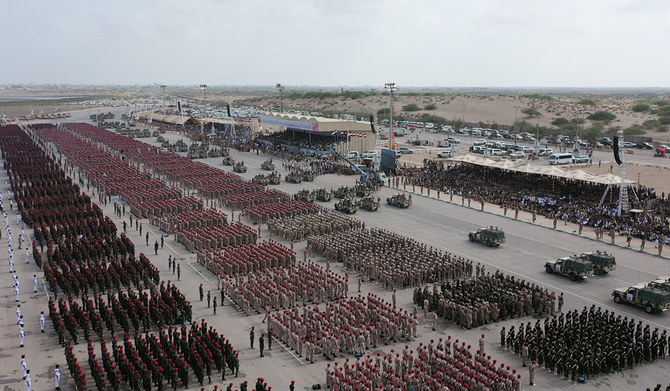
The Trump administration’s initial decision to strike Iran in retaliation for the destruction of a $130 million drone was understandable yet dangerous. The decision to abort the mission, after telegraphing it to the world, creates a big problem. Above all, it smacks of indecision and division within the president’s inner circle, the last thing you need when you are in a slow escalation with an unpredictable, over-proud lesser enemy.
There is little question that a military strike on, say, the missile battery that downed the Global Hawk reconnaissance drone on Thursday would be justified. It was clearly a conscious call by the regime, and I seriously doubt the claim that it was in Iranian airspace. I have been both the supreme commander of NATO, which deploys a variant of the Global Hawk, and an advisor to the manufacturer, Northrop Grumman, and in my experience the navigational precision of these aircraft is superb -- far better than manned flights. I have never heard of a high-end drone like this being deliberately or accidently flown into a hostile nation’s territorial airspace.
Which leads to the big question: What could the Iranians be thinking? And how does the US use the non-strike to its advantage?
The Iranians are taking a page out of the playbook of North Korean leader Kim Jong Un, who, among other affronts, launches missiles in the direction of Japan, seeking to demonstrate to the US and the global community that he can be a great deal of trouble. The Iranians are trying to demonstrate they can close the Strait of Hormuz, causing a significant disruption to the flow of oil and thus the global economy. Their theory, evidently, is that they will escalate until reaching the point at which the US will calculate it doesn’t want a third war in the Middle East and would rather ease economic sanctions. It is a flawed calculation given the enormous bite of US sanctions and European unwillingness to bail Iran out, but it has a certain logic.
Trump, of course, would like to avoid a war over the next 18 months before the 2020 election. He seemed, at first, to hope that the Iranians would declare the downing of the drone a mistake and back off. But there was no chance of that happening. If the Iranians had any intent of negotiating, they would have made it via the good offices of Japanese Prime Minister Shinzo Abe, who on a recent visit presented a letter to the Iranian leadership asking for talks. It was immediately and sharply rejected.
The next logical step will be to dangerously harass a US warship, probably with a swarm of small boats, a tactic the Revolutionary Guard Corps practices frequently. The Iranians might also broaden their tactics, using a proxy such as the Lebanese terrorist group Hezbollah to attack Israel or a European nation. Another move could be actually sinking an oil tanker approaching the Strait of Hormuz with a torpedo from their capable diesel submarine force.
The US is studying military options other than a strike, according to Pentagon leadership. Those presented to the president will likely include relatively low-level moves like cyberattacks on parts of the Iranian grid; or perhaps enhanced aggressive surveillance through overflights by combat aircraft from carrier Abraham Lincoln, which is in the Gulf. The medium-weight options include actually going ahead with a Tomahawk missile strike against the surface-to-air missile site that destroyed the drone. If Trump chooses to go in heavy (unlikely) the options will include destroying IRGC ships and barracks at ports in and around the Strait of Hormuz. Iran’s mine-laying force in particular would be a powerful symbolic target.
Any of this would lead to harsh counter-moves by Iran and a ladder of escalation. So the best approach for the White House right now is to declare the non-strike an effective show of America’s military potential, and then pump the brakes and assess whether the Iranians really want to further ramp up aggression.
The problem is that it’s hard to see a climb-down for the Iranians at this point. For the US, the key strategic effort ought to be winning over the European and Asian allies to condemn Iranian behavior – including the attacks on tankers in the Gulf over the past month and Iran’s drone attacks on Saudi Arabia. This could cause the Iranians to blink. But the window for it – and avoiding real combat between the US and Iran – is narrowing rapidly.
Bloomberg View












